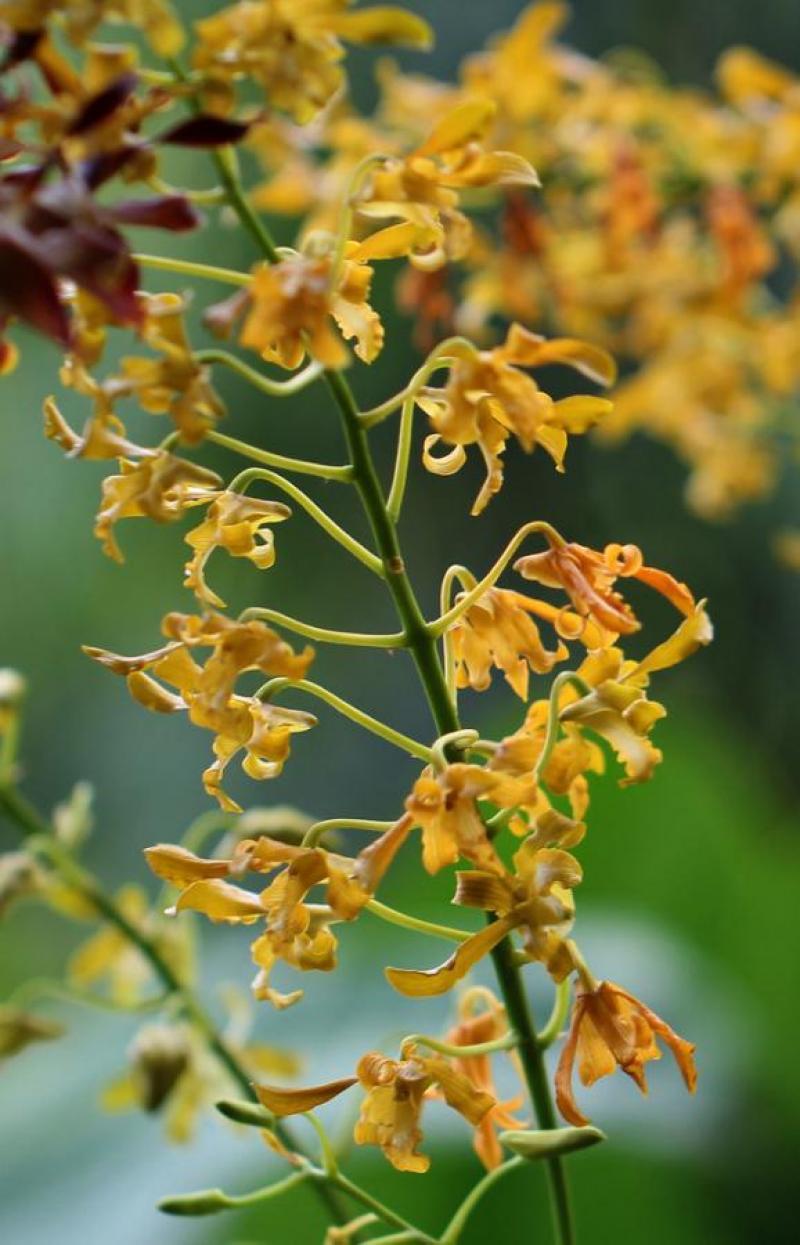Dendrobium sylvanum
Also known as: The Forest Dwelling Dendrobium or Dendrobium sylvanum h.f. flavum Dendrobium kennedyi Dendrobium warianum Durabaculum kennedyi Durabaculum prionochilum Dendrobium robustum Durabaculum validum Dendrobium prionochilum Durabaculum warianum Dendrobium validum Dendrobium sylvanium in the subfamily: Epidendroideae
Native to: New Caledonia
General Information
The Forest Dwelling Dendrobium is a large sympodial hot growing epiphytic orchid belonging to the sub family Epidendroideae native to New Caledonia.
Plant Description
Sympodial. Grows to 50-122cm. Each new growth has numerous erect oblong shaped leaves that grow to 8-15cm long. Pseudobulbs grow to 50-122cm
Care Notes
These orchids have a fine root system that can quickly die back if left dry for too long, but also does not like to be kept wet, so water regularly but ensure that the mix is dry before watering.
Climate
Grows at low elevations. Rainfall ranges from 84mm to 376mm per day, heaviest in July and lightest in December. Humidity ranges from 69% to 77%, highest in July and lowest in March. Temperature ranges from 22C to 33C, highest in April (23C to 33C) and lowest in February (22C to 32C).
Watering
These orchids are sensitive to excessive watering and should only be watered when they look thirsty. Water infrequently and ensure that the roots are dry before watering. Keep an eye on them especially during hot weather as overwatering can lead to rot, whereas underwatering may result in wilting or shriveling, which while unattractive, will not kill the plant.
Fertiliser
Apply liquid based fertiliser per recommended directions. They can benefit from a high phosphate fertiliser leading up to flowering season, followed by a high nitrogen fertiliser when new growth appears, and a balanced fertiliser in other times. These orchids can also tolerate slow release fertiliser applied 1-2 pellets per cup (250ml) of media.
Use balanced fertiliser year round. Apply fertiliser regularly at half strength year round.Potting
Due to the growth nature of these plants they are best mounted onto cork, tree fern slabs, or even trees if the climate suits. Water regularly especially in hot weather.



